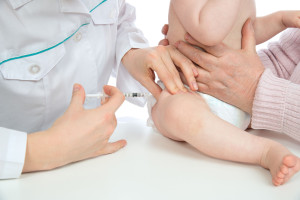 Autism and its distinct subtypes are a result of complex disorders in the brain. These disorders manifest themselves as difficulties with verbal and nonverbal communication, repetitive behavior, and impaired social interaction.
Autism and its distinct subtypes are a result of complex disorders in the brain. These disorders manifest themselves as difficulties with verbal and nonverbal communication, repetitive behavior, and impaired social interaction.
The autism prevalence rate in the U.S. is growing rapidly. Affecting 1 in 88 children, autism is considered the fastest-growing cognitive developmental disability in the nation. Boys are five times more likely to be affected than girls.
What causes autism?
Although it’s not directly known what causes this disorder, recent studies have shown a link between genetic factors, such as gene mutations and parental age at conception, and environmental stressors, such as maternal illness during pregnancy, particularly periods where oxygen is cut off from the brain. For a long time, however, there has been a good deal of debate about the prevalence of the MMR vaccine and the onset of childhood autism. In fact, a 1998 British study published in the Lancet caused a huge scare, not only in Britain but also in the States. At this point, the study has been largely discredited, yet fears still exist and dialogue still continues.
What is the vaccination/autism link and should I worry?
The British study found that eight out of 12 children started showing signs of autism, including a slowing down of social interaction and speech disorders, immediately after being vaccinated with the critical MMR vaccine that wards off measles, mumps, and rubella. Critics immediately surfaced, indicating that autism was detected because the onset of this disorder occurs at practically the same time that the vaccine is administered. Concerned parents will also be happy to know that 10 of the 12 authors of the report have since disavowed its findings—and the lead author, Andrew Wakefield, has been stripped of his medical license for allegedly falsifying data.
Currently, it appears that there is little to no direct link between the MMR vaccination and autism. However, the issue is being closely monitored by institutions, such as the national Institute of Mental Health (NIMH), and studies continue to slowly shed light on this growing epidemic. It should also be noted that the World Health Organization (WHO) recommends vaccinating your children against these preventable viruses.

















